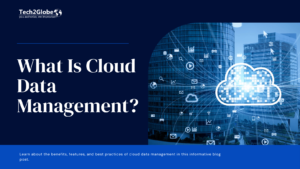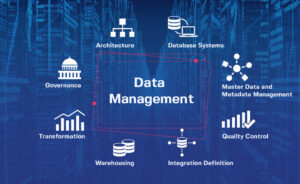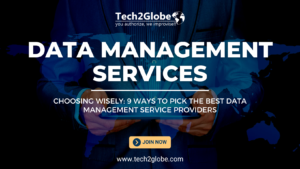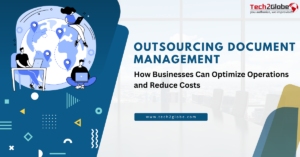Are you ever burdened by the sheer volume of data spread across various systems within your company? Fear not, as data management suites, equipped with powerful tools for data management are here to lend a hand! Think of it as a centralized hub that connects data from anywhere, whether it’s on-premises servers, public cloud storage, or a combination of both.
The location isn’t the only element to take into consideration. When it comes to data management softwares, you receive an entire package of powerful data management programs. It’s like a two-in-one punch that connects and cleans. Companies use these suites to bridge the gap between various data sources, allowing seamless access and conversion.
And there’s more! Businesses often add extra features like data cataloging and master data management. Cataloging helps organize your information library, while MDM creates a single, reliable source of truth for critical data.
The demand for dependable data solutions is greater than ever because companies are looking for comprehensive suites that can manage increasing data quantities, while keeping the information. So, don’t wait anymore and get ready to harness your data and realize its full potential with data management systems, software, and data quality management platforms.
Top Features to Look for in Data Management Suites
Data management suites often provide a variety of capabilities for efficiently handling and manipulating data. These are some of the most popular features found in data management suites:
- Provide a complete view of essential business entity data (e.g., customer, supplier, partner) from several internal and external sources.
- Artificial intelligence and machine learning recommendations can automate and accelerate integration and data management tasks.
- Identify and protect sensitive data promptly to ensure compliance with rules and data security standards.
- Help manage master data by deleting duplicates, formalizing data in bulk, and implementing rules to prevent inaccurate data from entering the system.
- Allow business users to search and access data included within catalogs.
Best 10 Data Management Suites our Business
Data management suites and data management tools serve distinct purposes in handling data. While data management suites have a comprehensive set of integrated features, which manages various data aspects, data management tools are individual applications or solutions that target specific data management tasks.
Let’s read about some of the top data management suites in 2024.
- Google Cloud Platform (GCP)
GCP is a cloud public provider that offers free or pay-per-use access to Google’s global data centers offering a variety of computing services, including cost management data management, data management, video and web delivery, as well as AI as well as machine-learning capabilities.
Google Cloud Platform regions provide various cloud data management services, including computing, hosting, storage, database, networking, big data, and machine learning, with some limited to specific regions.
2. Amazon Web Services (AWS)
AWS offers more features and services than any other cloud service, including infrastructure technologies like storage, computing, databases, and more. Additionally, it offers machine learning, artificial intelligence data lakes, analytics, data lakes, and the Internet of Things. This makes it faster, easier, and less expensive to migrate your existing apps to the cloud and construct almost anything.
AWS also provides the most extensive functionality inside those services. For example, AWS provides the most diverse set of databases explicitly designed for various applications, allowing you to select the best tool for the job in terms of cost and performance.
3. Microsoft Azure
Microsoft Azure can be considered both a data management suite and a data management tool, depending upon how it is used.
Azure, with around 1 billion active users, provides a number of cloud services aimed at the diversified demands of a wide range of sectors. Azure now provides more than 200 cloud services, the majority of which are Platform as a Service (PaaS), Software as a Service (SaaS), and Infrastructure as a Service (IaaS) solutions.
4. Snowflake
Snowflake is a wholly managed SaaS (software as a service) that offers a single platform for data warehousing, data lakes, data engineering, data science, data application development, and secure sharing and consumption of real-time/shared data. It was created in 2012. Snowflake includes out-of-the-box capabilities such as separation of storage and computing, on-the-fly scalable computing, data sharing, data cloning, and third-party tool support to meet the demanding needs of the companies.
5. Oracle Data Management Suite
Oracle data management adapts and responds to change more quickly and efficiently by managing your master data, whether you’re transferring an application to the cloud, dealing with the implications of mergers and acquisitions, or resolving metadata inconsistencies across business units and applications.
6. SAP Data Management
SAP’s data management solutions enable organizations to manage their data effectively, facilitating data migration and management during the transition to SAP S/4HANA. These solutions offer a unified perspective of data, backed by AI, analytics, and valuable insights. Benefits include seamless transition, enhanced data visibility, generation of valuable business insights, strategic decision-making through advanced analytics tools, and optimized business processes through innovative redesign and the utilization of data quality management software.
7. IBM Infosphere Master Data Management Server
InfoSphere MDM tackles the issue of fragmented, incomplete, and inconsistent data by providing a central repository for master data across the enterprise. It provides a comprehensive overview of an organization’s main business information. It also enables you to manage master data throughout its lifecycle by integrating with your organization’s own business rules and processes for creating, confirming, maintaining, and deleting master data from the repository.
8. Dell Boomi
Dell Boomi is used to create and deploy integrations between various systems and applications, such as enterprise systems like Salesforce, SAP, and Oracle, as well as cloud-based platforms like AWS and Azure, without the need for coding, using a visual drag-and-drop interface and pre-built connectors.
9. Informatica
Informatica is a platform for data processing and administration. It ensures that data from multiple sources is easily combined and examined to get critical insights that drive success through effective data processing.
Informatica allows you to aggregate data from a variety of sources, including as customer information, sales numbers, and industry trends, to gain valuable insights and make informed decisions. As you can easily convert raw data into useful information that you can trust.
10. Talend
Talend is an open-source software integration platform that supports a variety of solutions, including data integration, data management, and more. It entered the market in 2005 as the first commercial open source software vendor for data integration tools. It helps in making ETL more efficient and profitable.
Conclusion
As we look towards the future, the demand for advanced data management solutions and tools to manage data will continue to rise, offering new opportunities for innovation and growth. For comprehensive data management services tailored to your business needs, opt for Tech2Globe services. With their expertise in data entry, data intelligence services, data mining, data cleansing, and data processing, Tech2Globe can provide you with the necessary tools and solutions to effectively manage and leverage your data. Contact Tech2Globe today to see how they can help optimize your data management processes.










